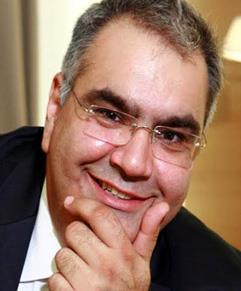
A two-year effort to study the effectiveness of Greek EVOO marketing abroad was recently released. Dimitris Karavasilis, international marketing consultant and founder of DK Consultants presented his self-funded research at the Food for Success conference in Athens on July 1, 2014.
The total number of Greek EVOO labelled bottles were counted by visiting the largest food fairs in Greece and abroad, made analytical searches in e-shops, and visited major retail networks and specialty stores in Greece, and the European Union.
They even recorded and surveyed data sources directly linked to the creation standards, such as graphic services, importers, bottles, formulators and mills.
Their analysis during 2011 catalogued 2,643 different Greek labels of EVOO available worldwide.
When they revisited those same sources in 2013, they found that nearly 2 out of 3 Greek brands on the market in 2011 had disappeared. It is important to note the 2012-2013 harvest was a bumper harvest year for EVOO production in Greece. It was some of the best EVOO ever produced with extremely low acidity levels. So it was not due to a lack of availability of Greek EVOO.
I asked Mr. Karavasilis the reason for the dramatic drop.
“Getting your label on the shelf is not where your job ends but where it begins. You need to maintain a consistent strategy and have available the necessary funding and the will to maintain a market presence. You also need a compelling story that would grab consumers’ attention and generate loyalty in order to promote the brand through word of mouth.”
 This is a significant research study that could bring about changes in how independent Greek olive oil is marketed by highlighting the need to build strong brands that can be differentiated by consumers. But even more importantly, it may nudge the Greek government into doing what every other major EVOO producing country has already set into place.
This is a significant research study that could bring about changes in how independent Greek olive oil is marketed by highlighting the need to build strong brands that can be differentiated by consumers. But even more importantly, it may nudge the Greek government into doing what every other major EVOO producing country has already set into place.
Karavasilis, has been an active proponent for the creation of a national marketing strategy at the Greek Ministry for Rural Development and Food over the last few years, but to date has received no interest. “It is a disgrace that we package our Greek national treasure in Italian Marasco bottles which we pay almost three times more to purchase than the Italians.
Why is it that we do not have our own unique bottle design for Greek EVOO that would be distinct and immediately recognizable?” he remarked when I asked him to give me an example of what he means by a national marketing strategy. “This is just one small example of how you can develop a new product, create jobs and provide better marketing support for the Greek olive oil industry all in one. But it needs political will to bring all the parties to the table,” he added.
Many independent distributors and growers who have succeeded in developing their unique Greek EVOO brands have been either returning Greek immigrants who are able to support their marketing efforts with their contacts and funding, or local growers who have received financial and marketing help from their relatives abroad.
 “Most local growers have little resources and need additional funding and education to sustain a long term marketing campaign and this is the reason for their failure,” Karavasilis said.
“Most local growers have little resources and need additional funding and education to sustain a long term marketing campaign and this is the reason for their failure,” Karavasilis said.
Recent tax increases on farm income and land have only exacerbated the situation for local growers.
There is some good news.
The Minister of Rural Development and Food, Athanasios Tsaftaris, was replaced last month by George Karasmanis, an outspoken supporter of the Greek farming community. Farmers are hoping he will continue his support now that he has the power to make a difference.
Source: oliveoiltimes.com


